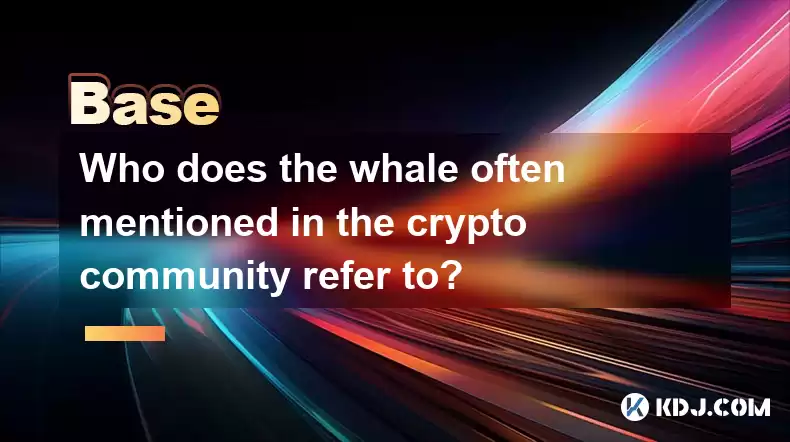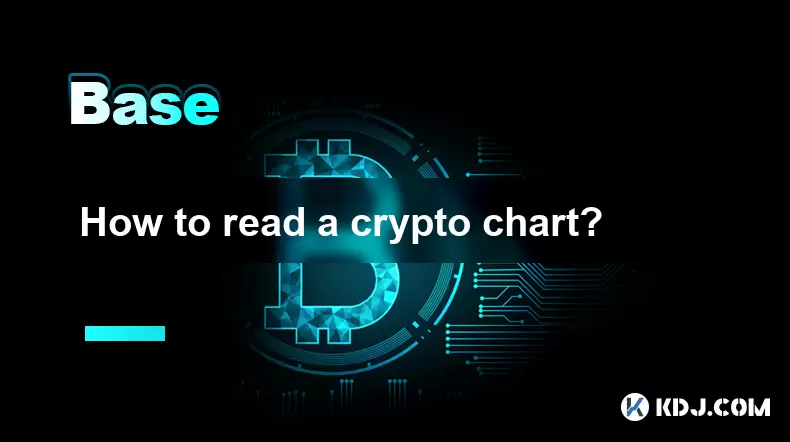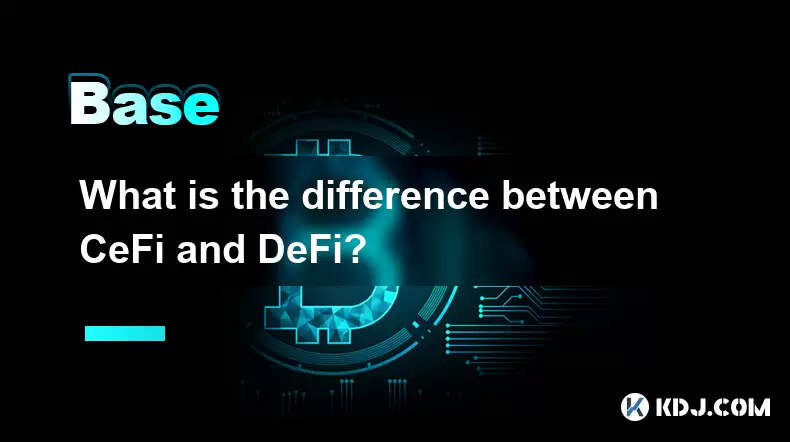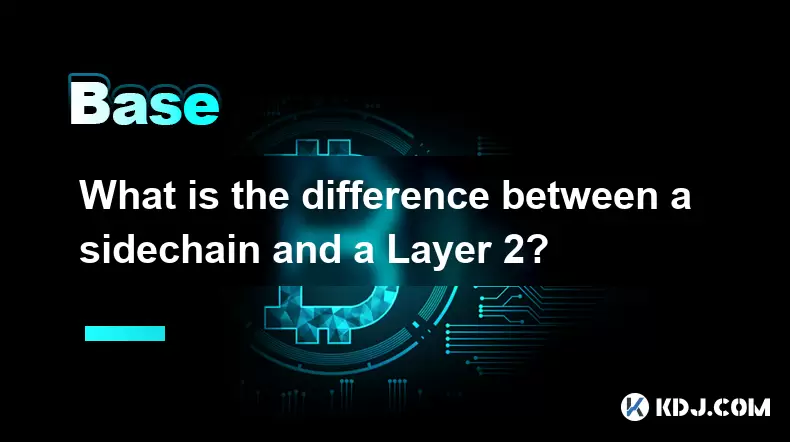-
 Bitcoin
Bitcoin $117500
2.15% -
 Ethereum
Ethereum $3911
6.19% -
 XRP
XRP $3.316
10.79% -
 Tether USDt
Tether USDt $1.000
0.01% -
 BNB
BNB $787.2
2.24% -
 Solana
Solana $175.2
4.15% -
 USDC
USDC $0.9999
0.00% -
 Dogecoin
Dogecoin $0.2225
8.40% -
 TRON
TRON $0.3383
0.28% -
 Cardano
Cardano $0.7868
6.02% -
 Stellar
Stellar $0.4382
9.34% -
 Hyperliquid
Hyperliquid $40.92
7.56% -
 Sui
Sui $3.764
7.63% -
 Chainlink
Chainlink $18.48
10.66% -
 Bitcoin Cash
Bitcoin Cash $582.1
1.88% -
 Hedera
Hedera $0.2601
6.30% -
 Avalanche
Avalanche $23.33
4.94% -
 Ethena USDe
Ethena USDe $1.001
0.02% -
 Litecoin
Litecoin $122.3
2.04% -
 UNUS SED LEO
UNUS SED LEO $8.969
-0.27% -
 Toncoin
Toncoin $3.339
0.86% -
 Shiba Inu
Shiba Inu $0.00001287
4.30% -
 Uniswap
Uniswap $10.43
7.38% -
 Polkadot
Polkadot $3.861
5.08% -
 Dai
Dai $1.000
0.02% -
 Bitget Token
Bitget Token $4.513
3.41% -
 Monero
Monero $267.7
-6.18% -
 Cronos
Cronos $0.1499
4.14% -
 Pepe
Pepe $0.00001110
5.15% -
 Aave
Aave $284.9
8.28%
Who does the whale often mentioned in the crypto community refer to?
Crypto whales, holding significant amounts of cryptocurrency, can influence market prices through their trading activities, impacting smaller investors.
Mar 30, 2025 at 07:21 am

Understanding Crypto Whales
In the cryptocurrency world, the term "whale" refers to individuals or entities holding a significant amount of a particular cryptocurrency. This amount is usually large enough to influence the market price through their buying and selling activities. There's no single universally agreed-upon threshold, but generally, owning a percentage of the total circulating supply in the high single digits or even double digits qualifies someone as a whale. Their actions can cause significant price fluctuations, impacting smaller investors.
Identifying a Whale: Is it a Person or an Entity?
A whale isn't always a single person. It could be:
- A wealthy individual: Early adopters of cryptocurrencies or those who invested heavily during its early stages often accumulated vast holdings.
- A large investment firm: Hedge funds, venture capital firms, and other institutional investors often hold substantial cryptocurrency portfolios.
- A cryptocurrency exchange: Exchanges themselves can hold massive amounts of various cryptocurrencies, influencing market dynamics.
- A decentralized autonomous organization (DAO): DAOs, with their collective treasury, can amass significant cryptocurrency holdings.
The Impact of Whale Activities
Whales' actions directly impact market volatility. Their buying activity can push prices up, creating a "whale pump," while their selling can trigger sharp price drops, leading to a "whale dump." This behavior can be unpredictable and significantly affect smaller investors who may not have the resources to withstand such swings. This is why understanding whale activity is crucial for informed investment decisions. Their influence extends beyond simple buy/sell orders. They can manipulate the market through activities like wash trading (creating artificial volume) and creating coordinated pump-and-dump schemes.
How Whales Accumulate Their Holdings
There are several ways whales accumulate their massive holdings:
- Early adoption: Investing in cryptocurrencies during their early stages, when prices were significantly lower, allows for the accumulation of large quantities with relatively smaller initial investments.
- Strategic investment: Whales often employ sophisticated trading strategies to accumulate assets, capitalizing on market trends and opportunities.
- Mining: For cryptocurrencies that use a proof-of-work consensus mechanism, significant mining operations can result in the accumulation of large quantities of the cryptocurrency.
- Acquisitions: Large-scale acquisitions of cryptocurrency holdings from other individuals or entities can quickly increase a whale's position.
The Ethics of Whale Activity
The ethical implications of whale activity are a complex topic. While some argue that whales are simply exercising their right to buy and sell, others criticize their actions for potentially manipulating markets and harming smaller investors. Regulations aiming to curb market manipulation are still evolving, and the decentralized nature of many cryptocurrencies makes it challenging to enforce them effectively. The lack of transparency surrounding some whale activities further complicates the ethical debate.
Tracking Whale Activity
While complete transparency is impossible, several methods help track whale activity:
- On-chain analysis: Analyzing blockchain data can reveal large transactions and the movement of significant cryptocurrency holdings. This data is publicly available but requires specialized tools and expertise to interpret effectively.
- Social media monitoring: Observing social media activity, especially on platforms popular within the cryptocurrency community, can sometimes provide clues about potential whale movements. However, this method is highly speculative and unreliable.
- Exchange data: While exchanges don't typically reveal individual holdings, the aggregate data they publish can sometimes hint at significant trading activity.
The Role of Whales in Market Development
Despite the potential for manipulation, whales play a crucial role in the cryptocurrency ecosystem. Their significant investments provide liquidity, support the development of the cryptocurrency, and can attract further investment from other market participants. However, this positive influence is often overshadowed by concerns about market manipulation and the potential for unfair advantages. The balance between these aspects remains a key challenge in the cryptocurrency space.
Understanding Whale Psychology
Trying to understand the motivations and strategies of whales is a speculative endeavor. However, some common assumptions exist:
- Long-term investment: Many believe that some whales hold cryptocurrencies as long-term investments, believing in the underlying technology and its future potential.
- Short-term gains: Others speculate that some whales primarily focus on short-term profits, engaging in speculative trading and market manipulation.
- Hedging strategies: Some may utilize cryptocurrency as a hedge against inflation or other economic uncertainties.
- Influence and control: A certain level of influence and control over the market may be a driving factor for some whales.
The Future of Whale Influence
The influence of whales is likely to remain a significant factor in the cryptocurrency market for the foreseeable future. However, the development of decentralized finance (DeFi) and other technologies could potentially mitigate their influence. Increased regulatory scrutiny and the development of more sophisticated analytical tools may also play a role in shaping the future dynamics of whale activity.
Frequently Asked Questions
Q: Are all whales malicious actors?
A: No, not all whales are malicious. Many hold significant cryptocurrency holdings as long-term investments or for other legitimate reasons. However, their actions can still significantly impact the market, regardless of their intent.
Q: How can I protect myself from whale manipulation?
A: There's no foolproof method, but diversification, risk management, and avoiding impulsive trading based on short-term price fluctuations can help mitigate the impact of whale activity. Staying informed about market trends and analyzing on-chain data can also be beneficial.
Q: Is it possible to identify a whale before they act?
A: Predicting whale actions is extremely difficult and largely speculative. While on-chain analysis can reveal large transactions, it doesn't necessarily predict their timing or market impact.
Q: What regulations are in place to control whale activity?
A: Regulations regarding cryptocurrency market manipulation are still evolving and vary significantly across jurisdictions. The decentralized nature of many cryptocurrencies makes enforcement challenging.
Q: Can small investors compete with whales?
A: Directly competing with whales is generally impractical for small investors. Focusing on long-term strategies, diversification, and risk management is a more effective approach.
Disclaimer:info@kdj.com
The information provided is not trading advice. kdj.com does not assume any responsibility for any investments made based on the information provided in this article. Cryptocurrencies are highly volatile and it is highly recommended that you invest with caution after thorough research!
If you believe that the content used on this website infringes your copyright, please contact us immediately (info@kdj.com) and we will delete it promptly.
- Tron's Sell-Off Spurs Altcoin Shift: What's Next for TRX?
- 2025-08-08 08:30:12
- RUVI Presale: Is the Growth Potential Real?
- 2025-08-08 09:10:12
- Sleep Token's US Takeover: Thornhill Rides the 'Even In Arcadia' Wave
- 2025-08-08 08:30:12
- FTT Token's Wild Ride: Creditor Repayments vs. Market Drop - A New Yorker's Take
- 2025-08-08 07:10:12
- Floki Crypto Price Prediction: Riding the Robinhood Rocket or Just a Meme?
- 2025-08-08 07:15:12
- EigenLayer, Restaking, and Ethereum: Navigating the Hype and the Hazards
- 2025-08-08 06:30:12
Related knowledge

How to read a crypto chart?
Aug 08,2025 at 10:35am
Understanding the Basics of a Crypto ChartA crypto chart is a visual representation of the price movements of a cryptocurrency over time. These charts...

What is the difference between CeFi and DeFi?
Jul 22,2025 at 12:28am
Understanding CeFi and DeFiIn the world of cryptocurrency, CeFi (Centralized Finance) and DeFi (Decentralized Finance) represent two distinct financia...

How to qualify for potential crypto airdrops?
Jul 23,2025 at 06:49am
Understanding What Crypto Airdrops AreCrypto airdrops refer to the distribution of free tokens or coins to a large number of wallet addresses, often u...

What is a crypto "airdrop farmer"?
Jul 24,2025 at 10:22pm
Understanding the Role of a Crypto 'Airdrop Farmer'A crypto 'airdrop farmer' refers to an individual who actively participates in cryptocurrency airdr...

What is the difference between a sidechain and a Layer 2?
Jul 20,2025 at 11:35pm
Understanding the Concept of SidechainsA sidechain is a separate blockchain that runs parallel to the main blockchain, typically the mainnet of a cryp...

What is the Inter-Blockchain Communication Protocol (IBC)?
Jul 19,2025 at 10:43am
Understanding the Inter-Blockchain Communication Protocol (IBC)The Inter-Blockchain Communication Protocol (IBC) is a cross-chain communication protoc...

How to read a crypto chart?
Aug 08,2025 at 10:35am
Understanding the Basics of a Crypto ChartA crypto chart is a visual representation of the price movements of a cryptocurrency over time. These charts...

What is the difference between CeFi and DeFi?
Jul 22,2025 at 12:28am
Understanding CeFi and DeFiIn the world of cryptocurrency, CeFi (Centralized Finance) and DeFi (Decentralized Finance) represent two distinct financia...

How to qualify for potential crypto airdrops?
Jul 23,2025 at 06:49am
Understanding What Crypto Airdrops AreCrypto airdrops refer to the distribution of free tokens or coins to a large number of wallet addresses, often u...

What is a crypto "airdrop farmer"?
Jul 24,2025 at 10:22pm
Understanding the Role of a Crypto 'Airdrop Farmer'A crypto 'airdrop farmer' refers to an individual who actively participates in cryptocurrency airdr...

What is the difference between a sidechain and a Layer 2?
Jul 20,2025 at 11:35pm
Understanding the Concept of SidechainsA sidechain is a separate blockchain that runs parallel to the main blockchain, typically the mainnet of a cryp...

What is the Inter-Blockchain Communication Protocol (IBC)?
Jul 19,2025 at 10:43am
Understanding the Inter-Blockchain Communication Protocol (IBC)The Inter-Blockchain Communication Protocol (IBC) is a cross-chain communication protoc...
See all articles

























































































